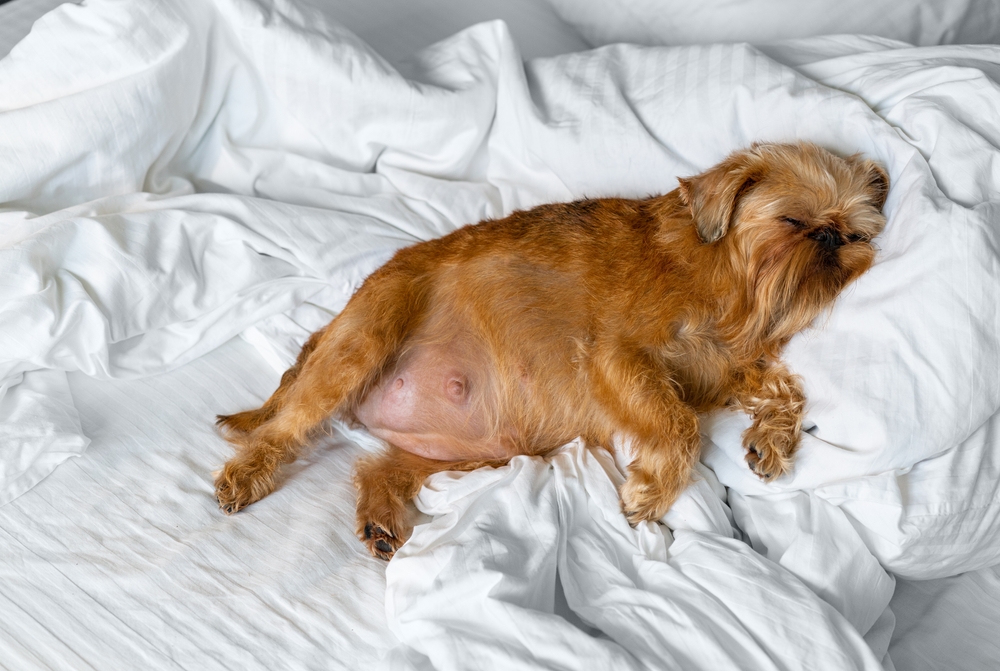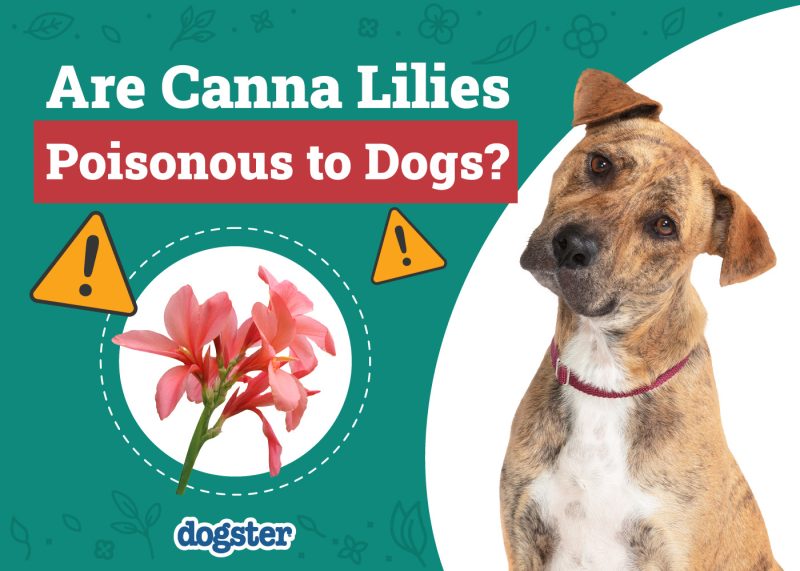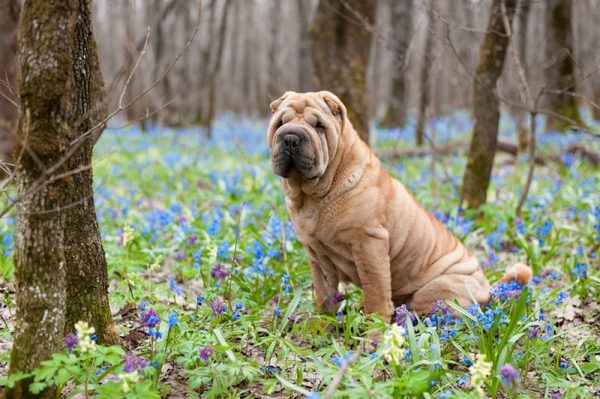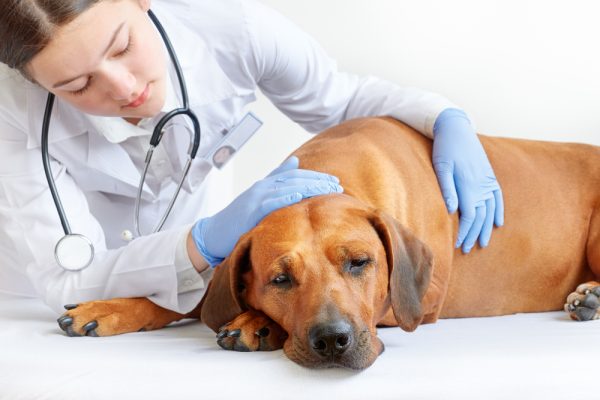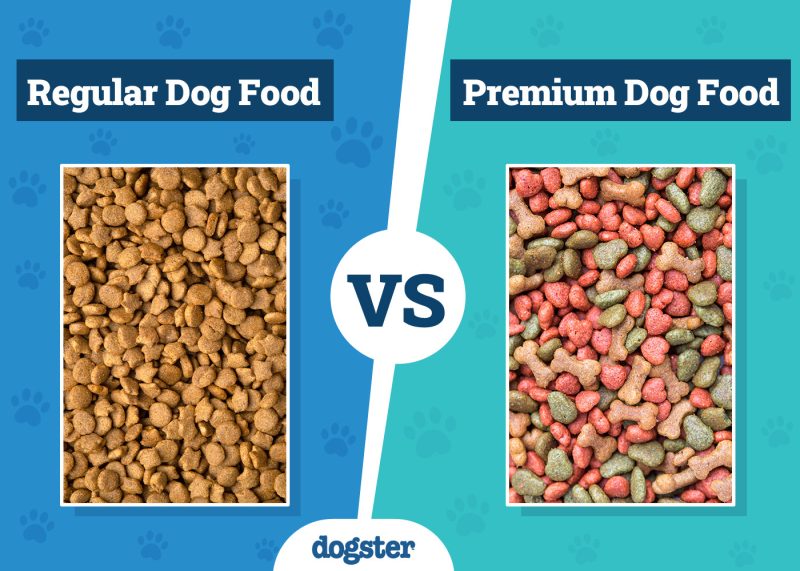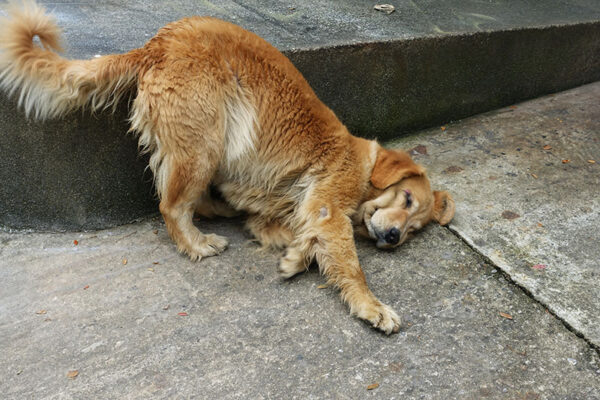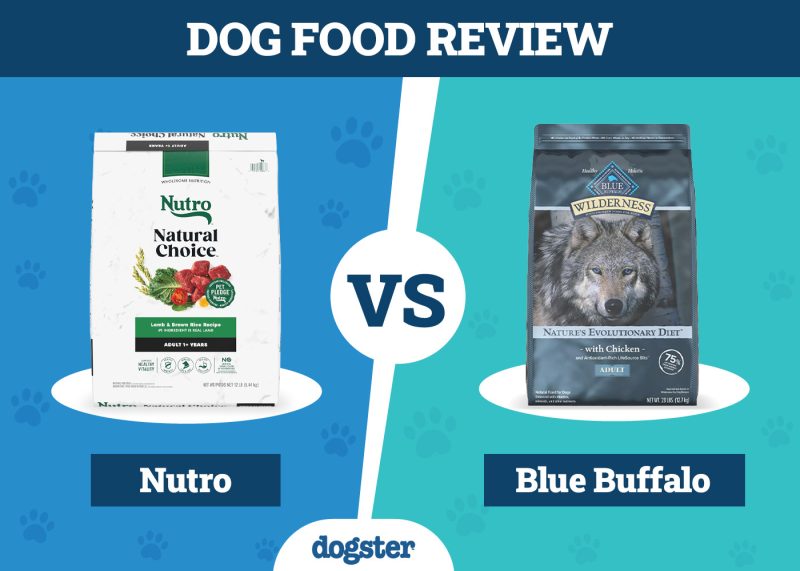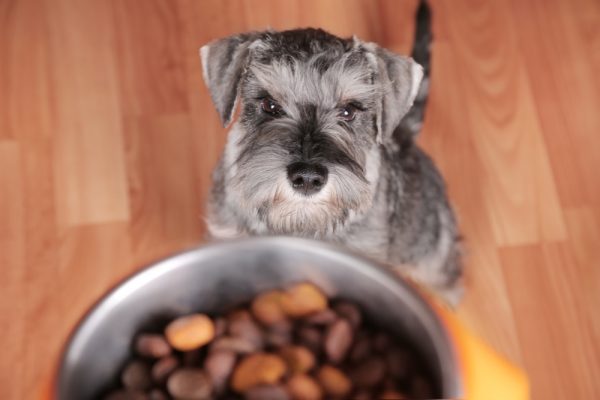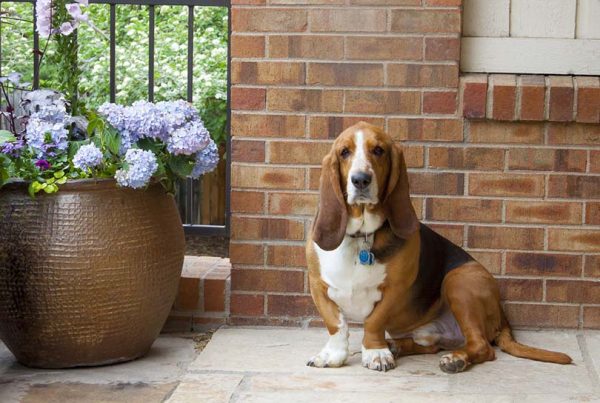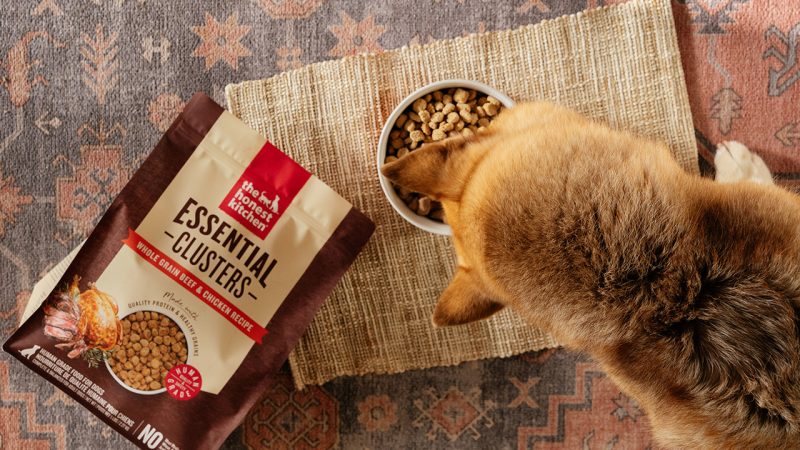In this article
View 2 More +If your dog is pregnant, you have a lot of things to consider, like feeding them the proper food, making sure she has follow-up appointments with the vet, and preparing for the birth. But what if your dog is losing hair? Is there something wrong with your dog if she’s losing hair during her pregnancy? The good news is that this may be pretty normal. Read on to learn about the possible reasons for this situation.

Why Is My Pregnant Dog Losing Hair?
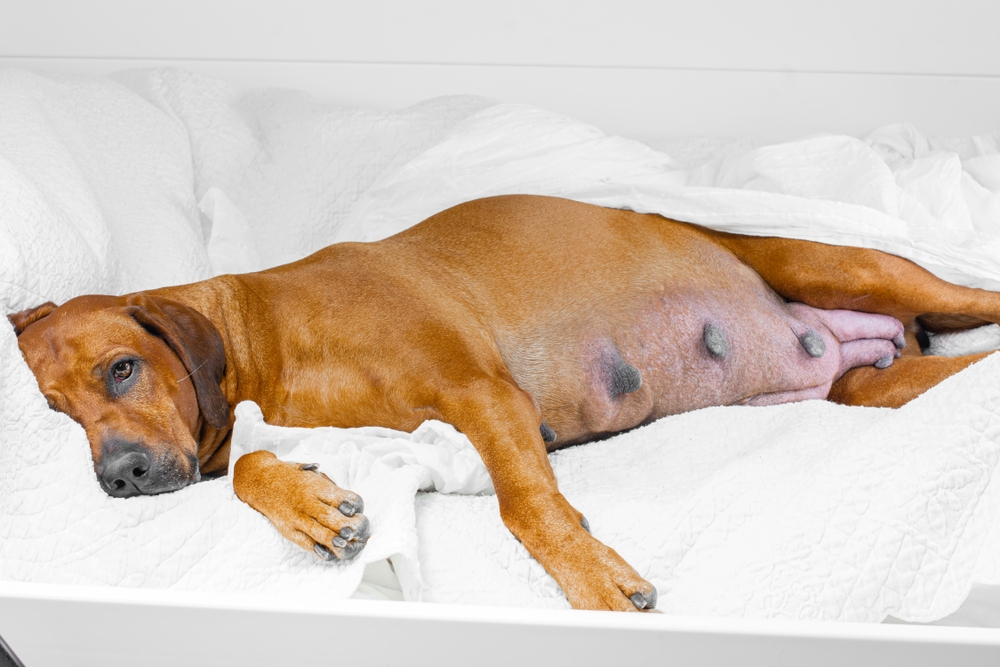
First, most of the time, you don’t need to worry if your pregnant dog is losing some hair. It’s a pretty normal occurrence for pregnant dogs.
- Nutrient deficiency
- Hormonal shifts
- Stress
Pregnancy is a very stressful time for your dog’s body. Stress can send hair follicles into a resting phase, where hairs can fall out and not be readily replaced. The technical term for this process is telogen effluvium. If your dog loses hair during pregnancy, talk to your veterinarian to ensure she consumes enough calories.
There are also numerous conditions unrelated to pregnancy that can cause your dog to lose hair, such as:
- Fleas
- Demodicosis
- Hypothyroidism
- Cushing’s disease
- Food allergies
What Can I Do to Stop My Pregnant Dog From Losing Hair?

It can be pretty stressful to see your beloved pup lose hair, but it’s important to recognize that many dogs lose some hair during pregnancy.
Traditional allergy medications should not be used during pregnancy for dogs with allergy signs such as itching. While you should speak with your veterinarian before using them, fish oils can be beneficial and safe for most pets. These supplements help improve the skin barrier and decrease itchiness.
Feeding a balanced diet is essential to support your dog during her pregnancy. Pregnant dogs may need up to 50% more calories than usual. Without adequate calories, your dog’s body will shortchange other body processes.
Insufficient calcium levels are another concern for pregnant and nursing dogs. In addition to skin issues and hair loss, low calcium levels can lead to seizures and muscle tremors, commonly referred to as milk fever.
Before breeding your dog, work with a veterinarian to ensure your dog is healthy. Dogs with underlying skin issues or endocrine conditions may be more likely to experience hair loss during pregnancy.
If you have questions about your pregnant dog and how you can support her, we suggest speaking to a vet online.
If you need to speak with a vet but can't get to one, head over to PangoVet. It's our online service where you can talk to a vet online and get the advice you need for your dog — all at an affordable price!

Frequently Asked Questions (FAQ)
Can I give my dog flea prevention during pregnancy?
Most flea prevention products are not labeled for use in pregnant or nursing dogs. You should speak to your veterinarian before using these products. Your veterinarian can help you develop options for managing and preventing fleas in pregnant dogs, such as environmental options.
Is my pregnant dog’s hair loss temporary?
In most cases, dogs that lose their hair during pregnancy will have it grow back again. The hormonal and nutrient fluctuations that your dog experiences while pregnant can affect the hair cycle of growth and rest.


Conclusion
If your dog starts to lose hair while pregnant, don’t despair! For many pets that lose hair, it will grow back within a few months of giving birth. You should consult with your veterinarian, particularly if your dog begins to smell, develops an oily coat or skin, or develops lesions like pustules, all of which could indicate a secondary skin infection.
Featured Image Credit: Vera Shcher, Shutterstock
